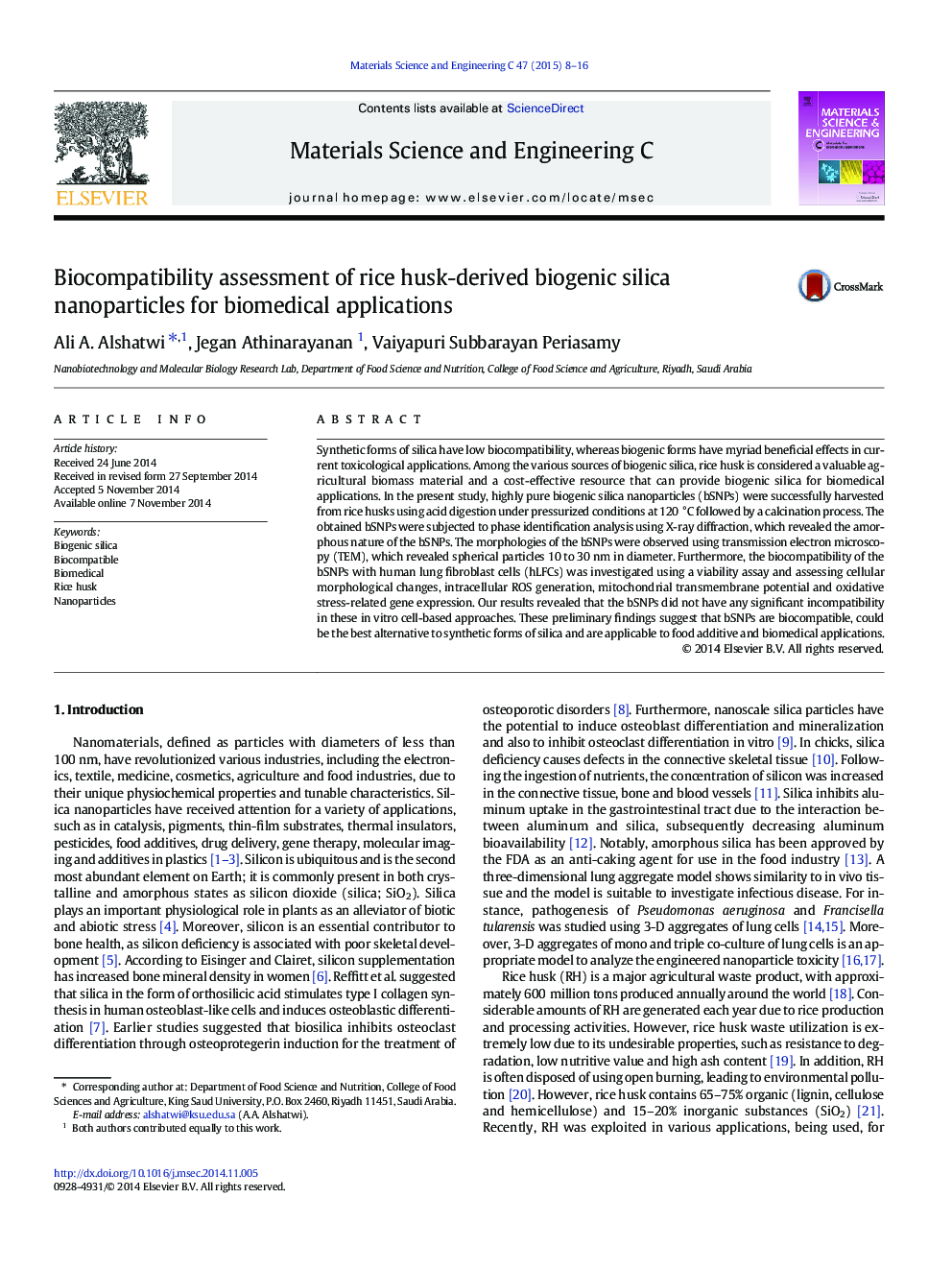| Article ID | Journal | Published Year | Pages | File Type |
|---|---|---|---|---|
| 1428374 | Materials Science and Engineering: C | 2015 | 9 Pages |
•Simple, rapid and convenient process•Amorphous and spherical with 10–30 nm size SiO2 nanoparticles were fabricated.•Biogenic silica nanoparticles showed biocompatibility.•bSNPs are an alternative to synthetic forms of silica.
Synthetic forms of silica have low biocompatibility, whereas biogenic forms have myriad beneficial effects in current toxicological applications. Among the various sources of biogenic silica, rice husk is considered a valuable agricultural biomass material and a cost-effective resource that can provide biogenic silica for biomedical applications. In the present study, highly pure biogenic silica nanoparticles (bSNPs) were successfully harvested from rice husks using acid digestion under pressurized conditions at 120 °C followed by a calcination process. The obtained bSNPs were subjected to phase identification analysis using X-ray diffraction, which revealed the amorphous nature of the bSNPs. The morphologies of the bSNPs were observed using transmission electron microscopy (TEM), which revealed spherical particles 10 to 30 nm in diameter. Furthermore, the biocompatibility of the bSNPs with human lung fibroblast cells (hLFCs) was investigated using a viability assay and assessing cellular morphological changes, intracellular ROS generation, mitochondrial transmembrane potential and oxidative stress-related gene expression. Our results revealed that the bSNPs did not have any significant incompatibility in these in vitro cell-based approaches. These preliminary findings suggest that bSNPs are biocompatible, could be the best alternative to synthetic forms of silica and are applicable to food additive and biomedical applications.
Graphical abstractFigure optionsDownload full-size imageDownload as PowerPoint slide
